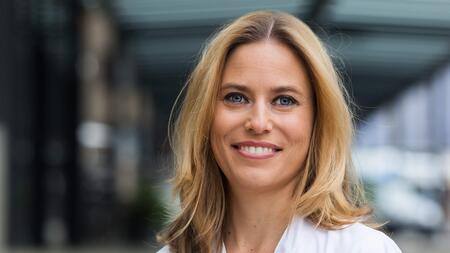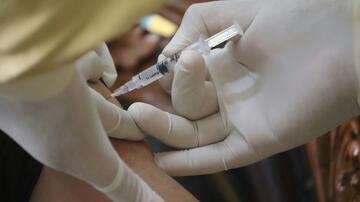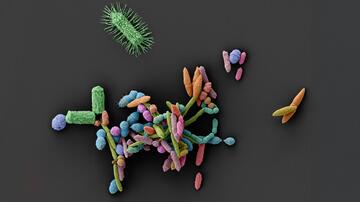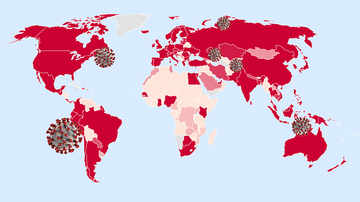Susanne Herold admitted to the German National Academy of Sciences Leopoldina
Renowned medical researcher and DZIF scientist elected to the Leopoldina – German National Academy of Sciences
Prof. Dr. Dr. med. Susanne Herold, a renowned lung and infection researcher at Justus Liebig University Giessen (JLU) and the University Hospital of Giessen and Marburg and scientist at the German Center for Infection Research (DZIF), is a new member of the prestigious German National Academy of Sciences Leopoldina. Admission to Germany's oldest scientific and medical academy is considered a special honor for scientific excellence.
The Presidium of the Leopoldina recently elected Prof. Dr. Dr. med. Susanne Herold to its ranks. The Leopoldina includes distinguished scientists from all over the world.
Her appointment to the Leopoldina honors her outstanding scientific achievements in the field of infection and lung research. As holder of a LOEWE professorship funded by the state of Hessen at Justus Liebig University Giessen (JLU), Prof. Herold's research focuses in particular on the mechanisms of severe pneumonia and acute lung failure. Her studies on virus-induced lung damage and the mononuclear phagocyte system have received widespread national and international acclaim. During the COVID-19 pandemic, she gained global recognition as one of the leading scientific voices in the fight against SARS-CoV-2. At the DZIF, Susanne Herold works as a scientist in the research area "Emerging Infections" and as deputy speaker of the DZIF partner site Giessen-Marburg-Langen.
About Prof. Dr. Dr. med. Susanne Herold
Susanne Herold received her medical doctorate from Justus Liebig University Giessen in 2003 and earned an additional Ph.D. in 2008. In 2010, she received her specialist certification in internal medicine and infectiology, followed by her habilitation on the mononuclear phagocyte system of the lung in cases of acute pneumonia. In 2015, with funding from the German Center for Lung Research (DZL), she became professor of acute lung failure at JLU and, at the same time, at the University Hospital of Giessen and Marburg. She qualified as a specialist in pulmonary medicine in 2016. In 2018, Susanne Herold was appointed professor of infectious diseases of the lung and became head of the Infectious Diseases Department at the University Hospital of Giessen and Marburg. She also headed a DFG-funded clinical research group on virus-induced lung damage.
About the German National Academy of Sciences Leopoldina
Founded in 1652 and based in Halle (Saale), the German National Academy of Sciences Leopoldina is a traditional learned society with around 1,700 members from almost all scientific disciplines. It was appointed Germany's National Academy of Sciences in 2008. In this function, it has two key responsibilities: representing German science abroad and providing advice to politicians and the public. In its interdisciplinary discourse, the Leopoldina transcends thematic, technical, political and cultural boundaries and advocates respect for human rights. It is not possible to apply for the Leopoldina on your own behalf.
Source: Press releases from Justus Liebig University Giessen (in German only) and the German Center for Lung Research (DZL)




